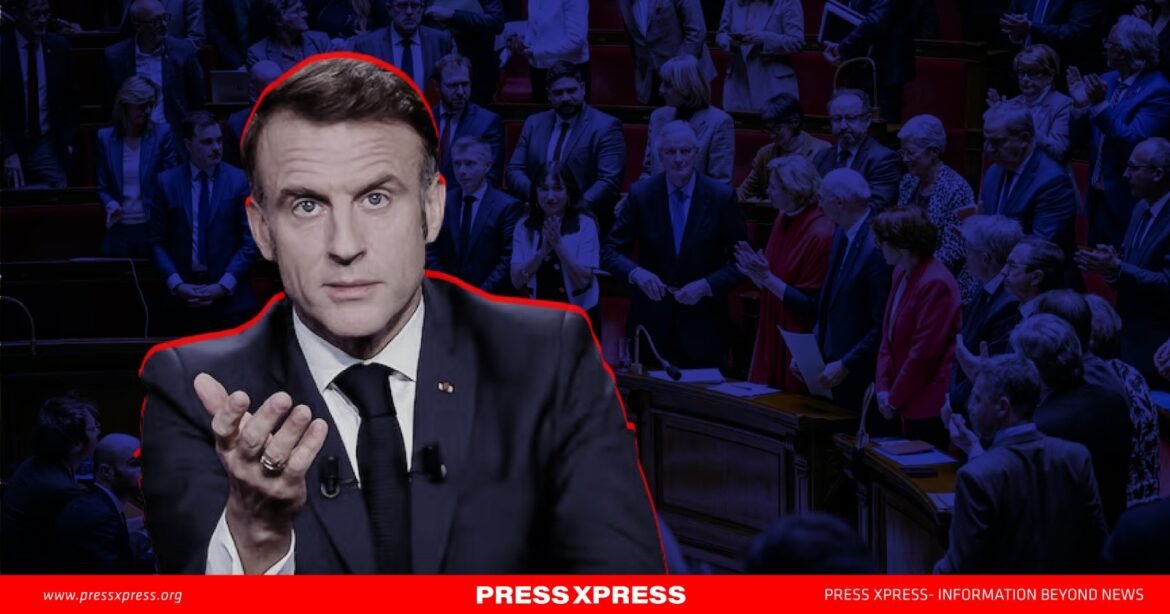French President Emmanuel Macron has announced plans to appoint a new prime minister in the coming days, following the downfall of Michel Barnier’s government after just three months in office. The incoming prime minister’s top task will be to push through the 2025 budget, a critical step in addressing France’s growing fiscal challenges.
In a televised address on Thursday, Macron confirmed that the priority of the new administration would be to ensure the swift passage of the national budget, which will address the country’s budget deficit and inflation. “The priority will be the budget,” Macron stated, stressing that a special law to extend the 2024 budget would be presented by mid-December, while a full budget for 2025 would be prepared for parliament in early 2025.
Barnier’s resignation marked an abrupt end to his tenure, making him the shortest-serving prime minister in modern French history. The vote to oust him was prompted by his proposed fiscal reforms, which sparked opposition from both the far-right and the left-wing parties in parliament. Macron argued that these factions had united in an “anti-republican front” to bring down his government, deepening the political crisis.
Political Crisis and Macron’s Commitment
Macron’s presidency has been increasingly marred by political instability, particularly after the inconclusive results of the June parliamentary elections. Despite the ongoing turbulence, Macron has resisted growing calls for his resignation. In his address, he reiterated his intention to stay in office until his term ends in 2027. “The mandate you have given me is for five years, and I will fulfill it until the very end,” he said firmly.
The president did not specify which political groups would be included in the new government but emphasized the need for a broad coalition willing to work together, at least temporarily, without resorting to censure motions. This call for unity comes as Macron faces an uphill battle in managing a fragmented parliament where no single party holds a majority.
Fiscal Pressures and Market Reactions
The political crisis has compounded France’s fiscal pressures, as the country struggles to bring its public finances under control. The new prime minister will face the challenging task of securing parliamentary approval for the 2025 budget, which is expected to address the nation’s deficit while balancing economic growth.
In the wake of Barnier’s ousting, the French financial markets saw a brief rally, with bonds and stocks rising. However, analysts have warned that the optimism may not last. “Until potential new elections, ongoing political uncertainty is likely to keep the risk premium on French assets elevated,” analysts at Société Générale noted. The earliest possible date for a parliamentary election is July 2025, adding another layer of uncertainty to France’s political and economic outlook.
While Barnier’s government continues to function in a caretaker role, France’s fiscal outlook appears to hang in the balance. Credit rating agency Standard & Poor’s indicated that the political instability could lead to less stringent fiscal policies than initially planned, potentially complicating efforts to rein in public debt and reduce the national deficit.
Balancing Setbacks with Achievements
Despite the ongoing crisis, Macron pointed to several successes during his presidency as evidence that France remains capable of achieving its goals. He highlighted the rebuilding of Notre-Dame Cathedral after the 2019 fire, and the successful hosting of the 2024 Paris Olympics as key milestones. “They are proof that we can do great things. We can do the impossible,” Macron said, underscoring his belief in the country’s resilience.
As the search for a new prime minister intensifies, the political landscape remains precarious. France is at a crossroads, with questions about the future of its fiscal policy and political cohesion dominating the national conversation. As Macron seeks to restore stability, the world will be watching closely to see if the new leadership can bridge the divides that have paralyzed the French government.


